Mathias Frank: I want to prove I can finish in the Tour de France top ten again
Q&A with IAM Cycling's Tour de France leader
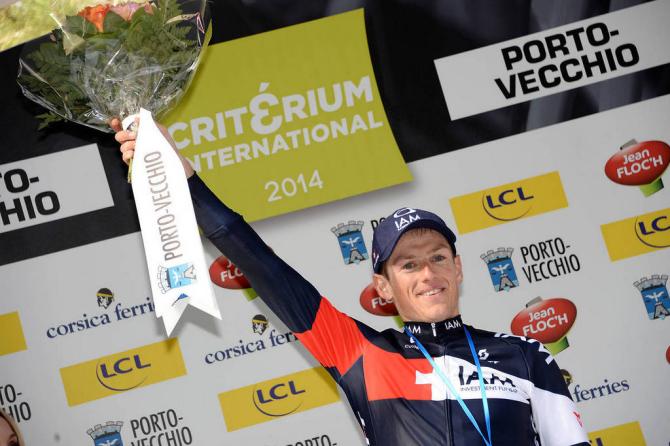
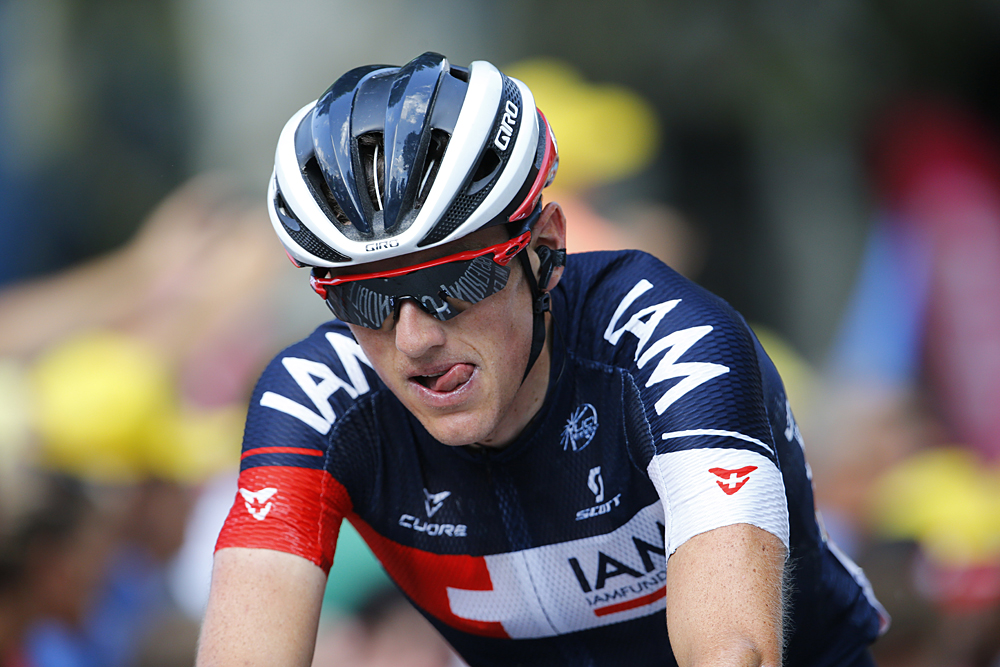
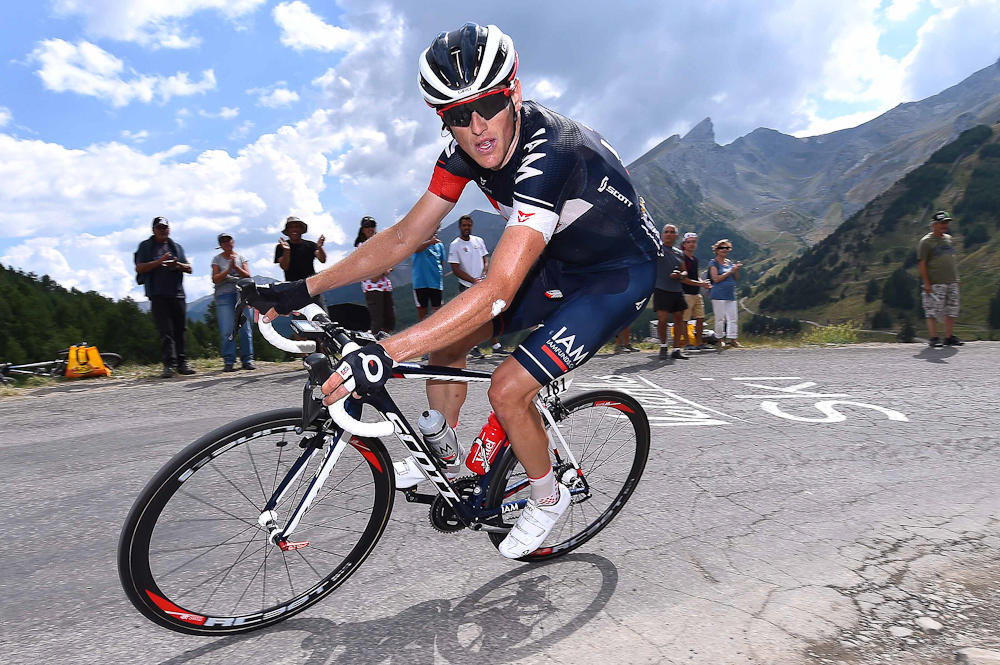
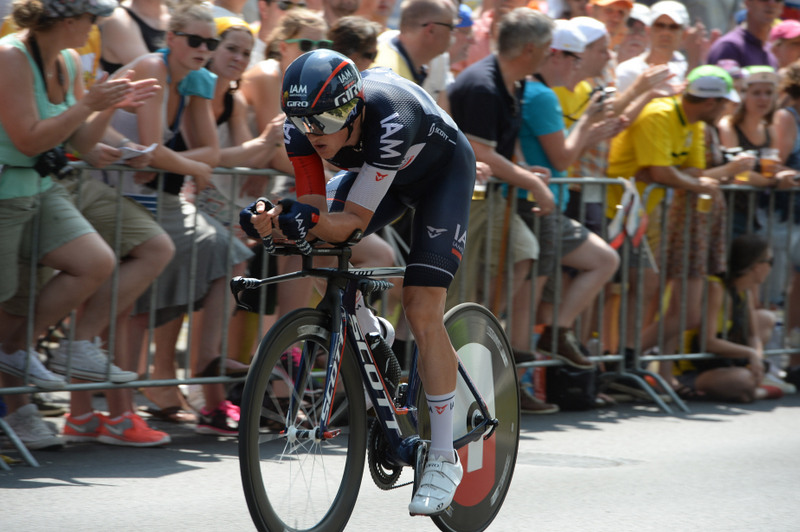
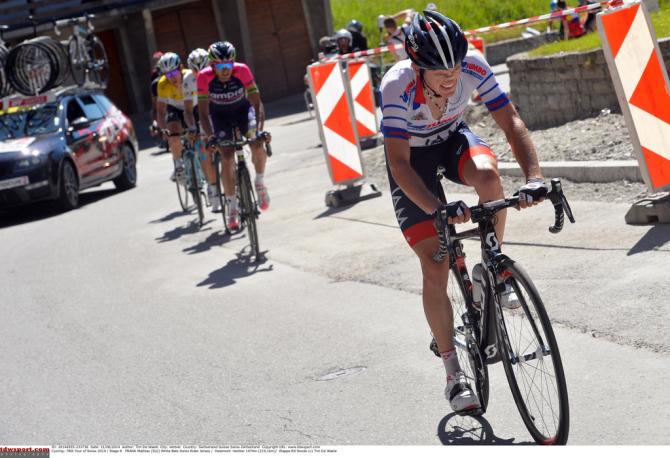
Mathias Frank came into this year's Tour de France with a bit of a point to prove. He had left the safety of BMC at the end of 2013 in order to lead IAM Cycling but a crash in the first week of last year’s Tour de France robbed him of the chance to test himself over three weeks.
This year he returned to the Tour and made good on his decision to change teams with eighth overall in Paris. Vindication, perhaps, but the 28-year-old, who sat down with Cyclingnews at the Arctic Race of Norway, is far from finished.
Cyclingnews: How's your shape since the Tour de France?
Mathias Fränk: I was tired after the race but did San Sebastian a week later. I could feel then that I wasn’t fully recovered and I just felt tired. Then I had a week off, and took a break with my family. I’m recovered now.
CN: That Tour de France result, 8th overall. How important for you was it?
MF: It was the most important race in my career. It showed that I was capable of getting a top ten in the biggest race in the world. It was actually a bit of a new experience for me because this was my eight season as a pro but I’d never tried for a GC in a three-week race. It’s also three years since I last finished a Grand Tour so going into the race, when we spoke in Utrecht, I didn’t really know what it was going to be like. It was a huge satisfaction with how it turned out.
CN: You left BMC in order to have that opportunity. It didn't quite work out with you at the Tour de France last year with IAM.
Get The Leadout Newsletter
The latest race content, interviews, features, reviews and expert buying guides, direct to your inbox!
MF: When I left BMC it was with all this in mind. I wanted to see how far I could take myself in a Grand Tour. I’m sure that if I’d stayed with BMC I wouldn’t have had this chance. It was important this year, after what happened in 2014, to show myself and the team that I could get a top ten in a Grand Tour. I didn’t want it to just remain a dream. I wanted to do it.
CN: Did that mean there was a lot more pressure on you, because of what happened last year and because all the riders on IAM sign one-year deals.
MF: I honestly don’t think so. I actually had a good season last year until the Tour but then had a crash on stage 7 and that meant I had an unfinished season but up until that point I had some results so people could see that in one-week races I was competitive and with the best guys. In the Tour last year I just wasn’t able to show that. This year it was all about the Tour but when it came to pressure it was more about the pressure that I put on myself. It was my third start in the race but on the previous two times I’d crashed out. That meant I put a lot of pressure on myself. Maybe that’s why I wasn’t going that well coming into the race this year. I was perhaps too stressed and I maybe wanted it too bad. I was sick sometimes, and I was even on antibiotics around the Dauphiné and had to take some time off. That helped in a sense in the end because I knew that although wasn’t going to the Tour de France with my best shape, I was at least going to arrive at the start feeling fresh both physically and mentally.
CN: How did you deal with that pressure, because IAM are a relatively new team and you're relatively new when it comes to leading a team at a Grand Tour when compared to some of your rivals?
MF: I have to say the team never put me under that level of pressure. We weren’t going there to win or hit the top five. We wanted a top ten, and to show ourselves in some stages. If we won a stage that would have been super. So I didn’t feel pressure from the team, and my goal was just to do my best every day. That’s hard of course but it was a lot easier than trying to focus on saying ‘I want to be in this position at the end of the day.’
CN: What's the key then to attaining a top ten place in the Tour? Can you pick out one key ingredient?
MF: There are many different factors but the key to my success was consistency. I wasn’t super good and wasn’t in the best shape at the start. I got better as the race went on although like I said I don’t think I reached my best level. I was just consistent and that meant that when I had a bad day I lost two or three minutes instead of fifteen. That was so important. I also had some luck. Okay I crashed a few times still but compared to other years I was lucky. I also had a team that looked after me and put me in the right position.
CN: Is it a race within a race for you, in the sense that you have 15-20 guys going for GC but you're not really marking Froome or Quintana?
MF: You have the top five guys who all mark each other. Then behind them you have another race for the top ten. That’s where I was and you’d be looking at each other and you’d have to mark them. It’s also an elimination race and you could see that because some of the guys who were super in the first week started to really suffer in the final week.
CN: So what are your goals for the rest of the season?
MF: I still have some goals but I want to win either here with a stage or perhaps at the Tour of Britain later in the season.
CN: Given how much focus you put into the Tour de France, is it not hard to switch the attention and dedication back on? It must be so easy just to switch off.
MF: I have to say that the Tour was incredibly hard both physically and mentally. In the preparation there was so much stress too because you’re never at home. That time off last week has given me some freshness, though, so I’m actually looking forward to the rest of the season.
CN: And you're with IAM for next season?
MF: I actually re-signed before the Tour and I have another one-year contract here.
CN: Do you like that, the one-year deals that the team offer?
MF: To be honest, no! [laughs] I don’t like it but that’s how it is. Maybe it will change in the future but cycling could move that way, especially with the 2017 reforms with the UCI because no one really knows what’s happening there. I think that a lot of guys are on one-year deals and I think it has advantages and disadvantages. Personally, I’d prefer a longer deal, because it doesn’t matter to me if I’m in the first or second year of a deal, I’ll always apply myself. It just gives the rider a bit more freedom.
MF: I’d love to go back there. The result this year was great but I achieved it when I wasn’t in my best shape. I’d love to there at my best and give it 100 per cent. I want to prove that this result can be backed up too. I don’t know how high I can finish but the only thing I know is that I can do better. Maybe next year I can be better physically but the result might not be as high but as long as I get to Paris knowing that I was in my best shape and that I gave it everything, I’ll be happy and we’ll see what the result is.
Daniel Benson was the Editor in Chief at Cyclingnews.com between 2008 and 2022. Based in the UK, he joined the Cyclingnews team in 2008 as the site's first UK-based Managing Editor. In that time, he reported on over a dozen editions of the Tour de France, several World Championships, the Tour Down Under, Spring Classics, and the London 2012 Olympic Games. With the help of the excellent editorial team, he ran the coverage on Cyclingnews and has interviewed leading figures in the sport including UCI Presidents and Tour de France winners.
